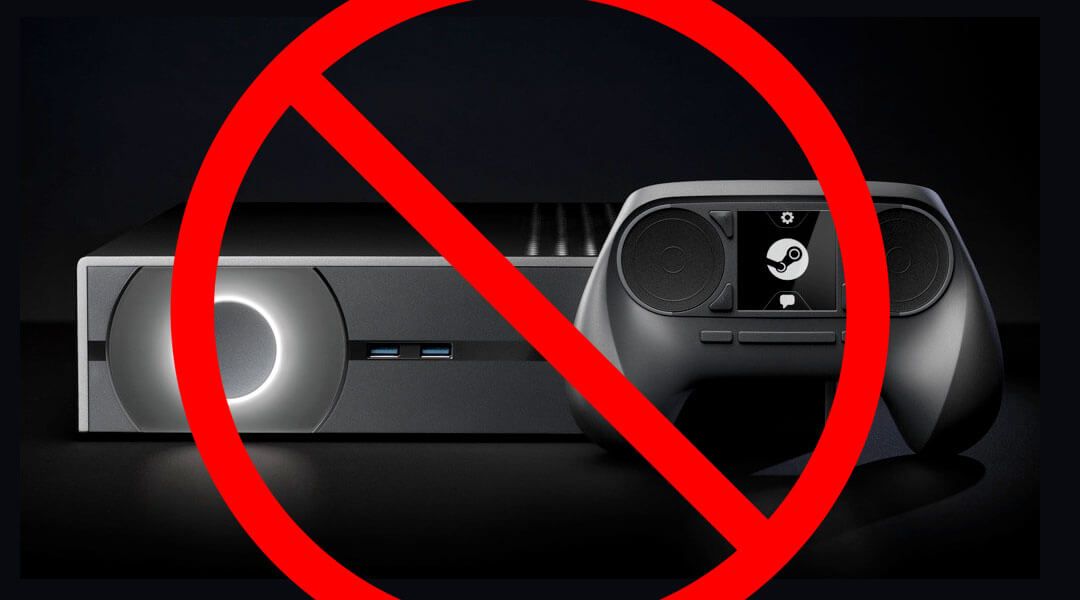Gabe Newell recently declared that the Steam Machine has the potential to take down the Xbox One and PlayStation 4, but I'm not so sure PC or console gamers agree.
Steam and its parent company, Valve, have been hard at work on the Steam Machines for years now. Though initially delayed, they're finally premiering this month, with over a dozen different versions for gamers to choose from. The prices vary as wildly as the specs behind each console, ranging from on-par with the PS4's and Xbox One's initial price points, to far beyond it, entering the four-digit range.
Valve thinks that they can appeal to both PC and console gamers with their Steam Machines, and Gabe Newell has gone so far as to say that he thinks his machines can conquer the console market. While Steam is more popular than ever, I have to say, I just don't see Steam Machines taking over.
I consider myself to be a pretty well-rounded gamer. I primarily play games on my PC, but I'm not into the whole 'master race' PC gaming scene; I also own consoles and handhelds, and they each serve a purpose. I'd rather play a first-person shooter on a computer, but I'd rather use a controller and a bigger screen for sidescrollers. As such, I buy some games for my PC, and others for my consoles.
However, there are those times when I want the full-screen, surround sound experience with my PC games. In these instances, I just bring my gaming laptop out to the TV and plug it in with an HDMI cable. For gamers with gaming desktops, it may not be the most convenient choice in the world, but that little bit of physical effort is easier than tossing $400-$1,400 on yet another console that's less flexible than our PCs.
Valve seems to be trying to appeal to PC gamers and console gamers alike, but it seems like they're missing the mark with both audiences. The Steam Machines come in many varieties, but they lack the customization that PC gamers have become accustomed to. Unlike console gaming, PC gaming regularly changes its requirements, so not being able to upgrade memory and video cards could leave a gamer in a bad situation in a couple years if they buy a lower-end Steam Machine. Alienware offers one of the least expensive forms of the Steam Machine (albeit not customizable) and they plan to release a new Steam Machine each year, but there's a big difference between buying a part and investing in an entirely new console.
PC gaming may have opportunities to buy games for less money than the two major consoles, but the appeal of buying a console and not having to replace or tinker with it for years to come is one their biggest selling points. Traditional game consoles can play brand-new games for years after the console's release, even for a while after the next generation of consoles emerges. But the Steam Machines aren't as flexible as PCs, and don't promise the long-lived reliability of traditional consoles, either.
There are undoubtedly some games on Steam that can't be played on major consoles, but even obscure indie titles regularly make their way to the virtual console marketplace. And if smaller-scale games were all it took for console gamers to decide to spend their money on another console, the Wii U wouldn't have just barely sold 10 million units.
To add further insult to injury, Valve knows that gamers want them to get back to what made them a force to be reckoned with to begin with – game development. While Valve continues to ignore gamers' demands for continuations of the Half-Life series and Valve's other franchises, they choose to pump out game peripherals and hardware, taking them further and further from their roots.
We'll have to wait to see if Valve's Steam Machines are a success or a flop like the ill-fated Ouya. Whatever the outcome, I wish Valve had spent a little less time on this major console venture and a little more effort making gamers happy by giving them what they actually want.

